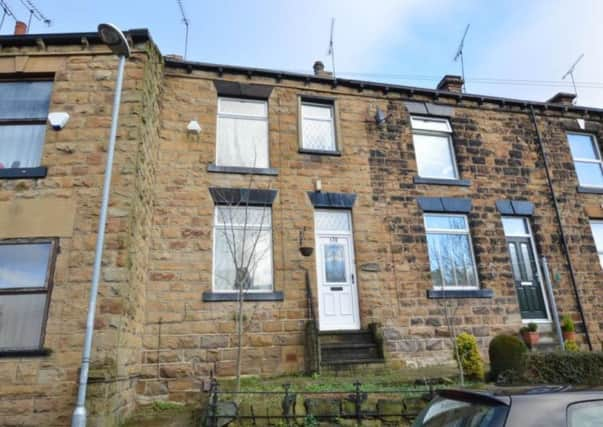Novice buyers need more help and advice


Getting onto the property ladder is an enormous challenge for many young people but first-time buyers are slowly edging back into the Yorkshire market.
Patrick McCutcheon, head of residential at Dacre, Son and Hartley, says: “First timers have been a lot more active since 2014 and this year we have experienced a further step change in demand from this group, especially in the new homes market. We have seen a ten per cent increase in new-build sales compared to the same period last year and the majority of those sales are to first-time buyers.”
Advertisement
Hide AdAdvertisement
Hide AdHe adds: “There is no doubt that financing is easier and there are some very attractive deals about. However, there is still a steady growth in prices, which means that those saving for a deposit are perennially playing catch up. It’s no wonder that the average age of first-time buyers is increasing, although thankfully in Yorkshire we have significantly fewer challenges than in London and the Home Counties.”
Mark Manning, of the Manning Stainton estate agency, says first-time buyer numbers in its branches have remained the same for the last two years. However, they represent a 32 per rise on 2013, when the economy was in the doldrums and borrowing was a struggle.
Like Dacres, the firm has also seen a big rise in demand for new homes, fuelled by the government’s Help to Buy equity loan scheme and better mortgage deals.
“There is still significant interest in apartments and small homes but what is interesting to note is the number of people now jumping straight to a small family-sized home and missing out that first step on the ladder,” says Mark, who adds that the average first-timer buying with Manning Stainton pays £100,000 for a property.
Advertisement
Hide AdAdvertisement
Hide AdFor those who are saving for a deposit, Beverley Johnson, sales executive at Lovell Homes’ Lincoln Gardens development in Doncaster, says that preparation is essential before property hunting.
“When considering whether to buy a home for the first time, many people just think about how they are going to save for their deposit and what kind of home they want to buy. However would-be buyers should be doing everything they can now, well in advance of actually buying, to ensure that they are in an ideal position to secure a mortgage.”
Here are some tips from Lovell Homes and from independent financial adviser Pete Brett, of the Mortgage Bureau.
*When applying for a mortgage, it’s important to be as organised as possible prior to applying. Documents which lenders usually ask for include a passport; proof of address (dated in the last three months); last three months’ payslips and bank statements; proof of deposit and latest P60 tax form, which shows income and tax paid from each tax year.
Advertisement
Hide AdAdvertisement
Hide Ad*Lenders will look at your credit file to see what loans and credit cards you have outstanding. It would be helpful to understand what exactly is showing on your credit file and there are free services where you can check this, such as www.noddle.co.uk
*Improving your credit score: Many people think this means carrying a balance on a credit card each month, which is not the case. You must prove that you can handle credit responsibly. If you have a credit limit of £2,000 on a credit card and you spend £150 but pay it all back in full each month, this looks much better than making the minimum payment each month.
*Ensuring you are registered on the electoral roll will increase your credit score. Lenders will use it to help verify who you are.
*Get a decision in principle before you even offer or reserve a property: Ensure you can get a mortgage and also take the time to understand mortgages and interest rates. An independent mortgage adviser can be very helpful.
Advertisement
Hide AdAdvertisement
Hide Ad*Many mortgage lenders require a deposit of at least 10 per cent. Other fees include survey costs, lawyer’s fee and stamp duty if the property is over £125,000
*Lenders will ask for a lot of detail about your outgoings so it’s worth tightening up on your spending the run-up to buying your first home.
*Look at the government’s generaous Help to Buy schemes, www.helptobuy.gov.uk